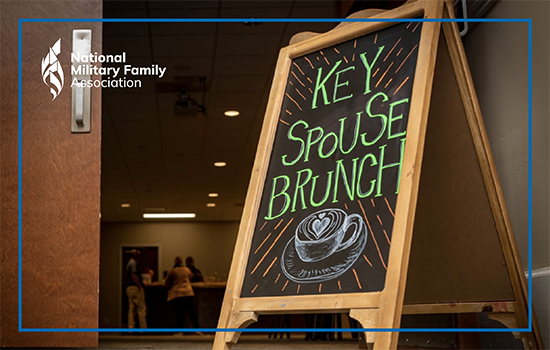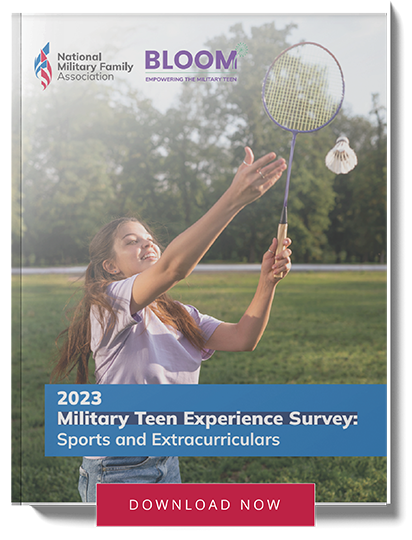Family Readiness Groups: 6 Things Military Families Should Know

Whether you’re a new military spouse or a seasoned one, you will hear about an ally in your corner—the Family Readiness Group (FRG). Just like the work that we do at the National Military Family Association (NMFA), your FRG has you and your family top of mind.
Apart from providing spouses and families a ‘built-in’ network for friendship, understanding, and connection at a new installation, family readiness groups offer families valuable resources and information to help them succeed at any duty station.
Each Service Branch Has One
Each service branch has a unique name for its FRG program, but all operate with the mission to provide timely support to military families while maintaining the integrity of the military mission.
Army: Solider and Family Readiness Group
Navy: Unit Ombudsman (key contact to reach your sailor’s FRG coordinator)
Air and Space Force: Key Spouse Program
Marine Corps: Unit, Personal, and Family Readiness Program
Coast Guard: Work-Life Program
When your family arrives at your new installation, have your service member inquire with their command about the FRG program. It’ll be the most reliable way to get connected or learn about getting involved.
Military OneSource hosts additional information by branch of service and FRG programs and is also worth checking out.
You Can Volunteer
NMFA has covered the benefits of volunteering as military spouses and one way to get started is through the FRG. In fact, your FRG will encourage tracking your volunteer hours—some even use a Volunteer Management System. Tracking your hours can result in meaningful awards from your military installation or a President’s Volunteer Service Award.
They Provide Support Services
Your FRG will have up-to-date information on resources available to you and your family. Looking for contact information or services on the base? Need access to a food pantry or temporary household goods? They can get you this information.
Take Part in Cheer and Goodwill
Holidays, Unit family events, and kid activities are some of the highlights that volunteers with the FRG enjoy most.
You Won’t Go Through Hardships Alone
When your military family faces quick changes—like deployments or PCS moves—with little to no notice, it can be challenging. Reach out to your FRG for someone to talk to, they may recommend the Unit Chaplain or provide information for individual and family counseling.
It Provides Two-Way Communication
Be empowered to access and utilize your FRG as a bridge of communication between your service member’s leadership and your family. If you have questions, it is very likely your fellow spouses do too. And when a command unit hears these concerns, then town hall meetings and briefings can be a result, bringing relevant information to the forefront.
Alongside your FRG, our Association is committed to making you and your family feel plugged in and connected to a reliable source. And while each service branch’s form of the FRG can differ, at the heart of it is to keep you informed and supported during your service member’s time with their unit.
By: Angela Sablan Tenorio, Content Manager




